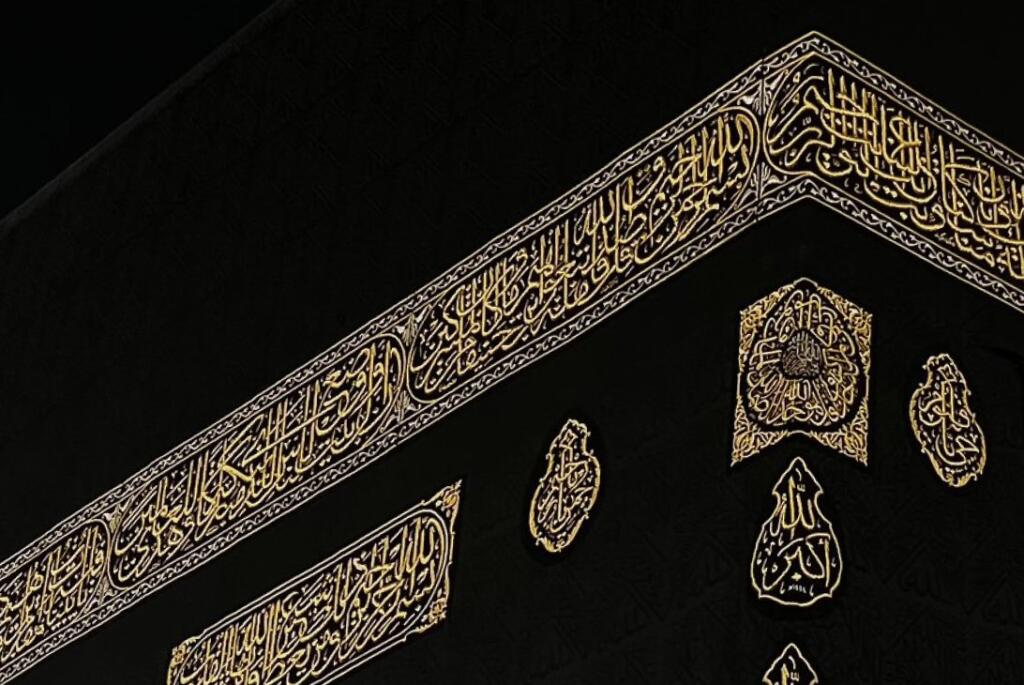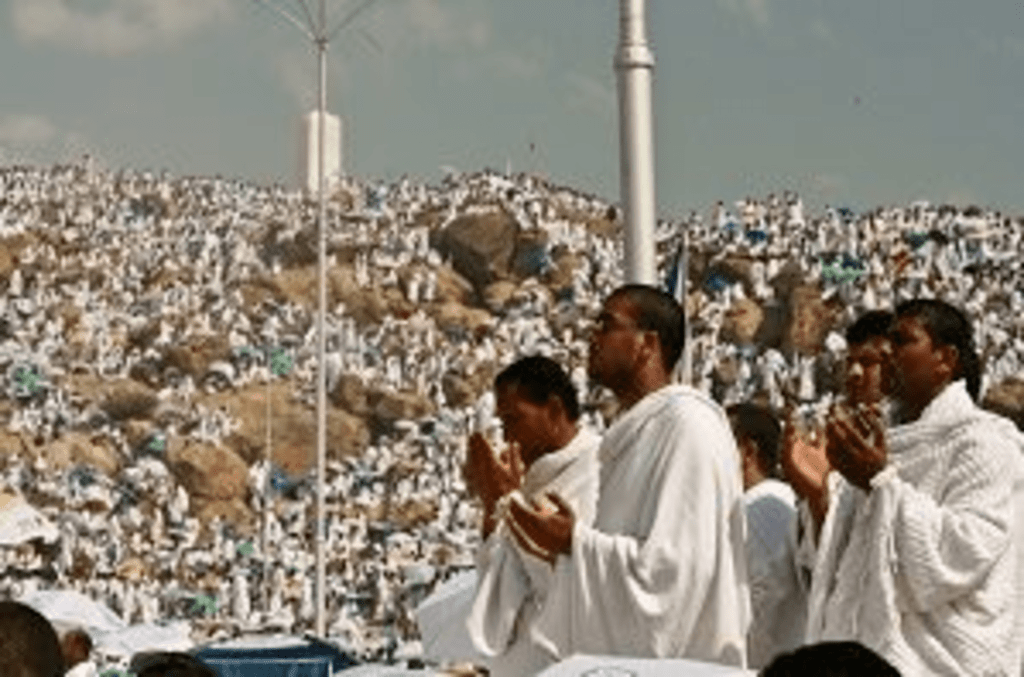We often feel overwhelmed by the pressures and difficulties of our lives; work issues, relationship problems, financial stress, chronic illnesses. And looking beyond our own immediate lives, we may feel despondent at the weak state of our ummah: genocides, illegal imprisonment, starvation, tyranny…and the list goes on.
Sometimes these feelings of despondency can lead to apathy, developing an inferiority complex, or questioning the decree of Allah, or even in extreme circumstances, rejecting Allah Himself. Similarly, we struggle with fighting temptations, and give in to Shayṭān’s whispers. Often, this is the case because we fail to recognise who Allah is. We are oblivious to how great and mighty Allah is, and thus, we don’t revere Him as He deserves to be revered.
Amongst the most perfect Names of Allah are: al-Kabīr, The Most Great, and al-Aẓīm, The Magnificent. Both of these Names denote the greatness, majesty and grandeur of Allah (subḥānahū wa taʿālā). Allah is Greater than anything we can imagine, and His greatness encompasses all things: He is Great in His Essence, His Names, His Attributes and His Actions. Allah is Supreme and Perfect: free from every limitation and deficiency that is inherent in created beings.
Allah is Great in His power, wisdom, knowledge and authority. There was nothing before Him, and there is nothing after Him. Everyone will perish except Him. None can overpower or defeat Him.
How to Appreciate Allah’s Greatness
Our limited minds are unable to fully comprehend the greatness of Allah. However, we can attempt to appreciate His Greatness by pondering over: (1) His creation, (2) and His words (the Qur’ān).
Allah (ʿazza wa jall) reminds us:
مَا لَكُمْ لَا تَرْجُوْنَ لِلّٰهِ وَقَارًا
“What is the matter with you that you are not in awe of the Majesty of Allah?” (71:13).
In the subsequent verses, He says,
“When He truly created you in stages (of development). Do you not see how Allah created seven heavens, one above the other, placing the moon within them as a light, and the sun as a lamp?” (71:14-16).
Thus, to be in awe of His greatness, we should reflect on our own creation, and the creation of the universe.
Reflecting on the beauty, harmony and the vastness of the earth, solar system and the heavens will help us appreciate Allah’s greatness. Our awe of Him will further increase when we reflect on the fact that on the Day of Judgement, the whole earth will be in a single grip of Allah’s Hand, and the heavens will be rolled up in His Right Hand. Ibn ʿAbbās (radiy Allāhu ʿanhumā) said, “The seven skies and earths are not in the Hand of The Most Merciful, except like a mustard seed in one of your hands.”
While I was on my way to ḥajj, we were worried that the desert Bedouins might attack us. We therefore took the route through Khaybar, upon which I saw huge mountains and natural pathways that blew my mind, and increased my appreciation of Allah’s greatness in my heart. I sensed Allah’s greatness here more than any other place.
So, I rebuked myself: ‘Woe to you! (If this amazes you then) go to the sea and contemplate its greatness. You will see greater wonders than this. Then go out and contemplate on the universe, and you will realise that the universe, the skies and the planets are just like a tiny particle in a desert.
Then roam around the higher regions, and walk around the Throne and behold what is in the heavens and hell. Then detach yourself from everything and direct your attention to Him! You will see that all of that is within the grasp of the Almighty whose ability has no limits.’ – Ibn al-Jawzī (raḥimahullāh)
The Greatest Creation
When we ponder on the greatness of Allah’s creation, such as the heavens, the earth, His Kursī and His Majestic Throne, and then realise our own inability to comprehend them due to their greatness, we should arrive at the most important realisation: how Great must their Creator be!
To understand His greatness, it helps to reflect on His greatest creation: His Throne (the ʿArsh of Allah). The Messenger of Allah ﷺ said, “The seven heavens in comparison to the Kursī is nothing but like a ring thrown in a desert; and the excellence of the Throne of Allāh over the Kursī is like the excellence of that desert over that ring.” (Bayhaqī)
Imagine the Sahara Desert. The entire desert is the Kursī of Allah (ʿazza wa jall), while the size of the heavens and the earth in proportion is equivalent to a ring thrown in this desert.
Now close your eyes, and let your mind ascend. Wander around this desert, which is now the Throne of Allah (ʿazza wa jall), and remember that the Kursī in proportion is the size of a ring. Can you even imagine the size of the Throne of Allah? It is mind-boggling.
If we cannot comprehend this, how can we then comprehend the greatness of Allah?
Mighty Angels
From amongst the creation of Allah that recognise His greatness, and revere Him as He deserves to be revered, are His angels. Despite being given immense strength and being huge in size, angels constantly praise Allah (ʿazza wa jall) and worship Him, and they never disobey Him. Yet, on the Day of Judgement, they will look at Allah and say, “How Perfect are You! We did not worship You as You deserved to be worshipped.”
Reflecting on how great the angels are will help us appreciate how great Allah, their Creator, is. Our beloved Prophet ﷺ informed us about an angel who is so great that his feet are in the lowest earth and his neck is under the Throne of Allah. Realising the greatness of Allah, he constantly repeats, “How Perfect are You! How Magnificent are You, Our Lord!” (Ṭabarānī). Similarly, the best of angels, Jibrīl (ʿalayhis-salām) was tasked with the most prestigious responsibility of transmitting the word of Allah (ʿazza wa jall). He has 600 wings. If he was to unroll a pair of them, it would fill the space between the sky and the earth. Despite his physical and spiritual greatness, the Prophet ﷺ saw him on the Night of Miʿrāj (ascension) looking like “a worn-out piece of cloth due to the fear of Allah” (Ṭabarānī). Jibrīl’s knowledge of Allah’s majesty and greatness reduced him to this state.
Connect to Al-Kabir & Al-Azim
The following are some ways in which we can call upon and worship Allah with His Names al-Kabīr (The Most Great) and al-Aẓīm (The Magnificent):
1. Humble yourself to His greatness, by affirming His Oneness, obeying Him, and fearing Him.
Let us fill our hearts with utmost respect and reverence for Allah. Let us feel awe in our hearts for Him, and feel shy of disobeying Him. Let us humble our hearts to the truth and submit to the commands of Allah and His Messenger ﷺ, even if they appear ‘irrational’ to us.
2. Glorify Him by constantly reflecting on His creation.
Every day we repeat ‘اَللّٰهُ أَكْبَرُ’(Allah is greater…!) and ‘سُبْحَانَ رَبِّـيَ الْعَظِيْمِ (How perfect is my Lord, The Magnificent!) over a hundred times in ṣalāh. Due to the repetition, we may say it mindlessly. Let us constantly think of how great He is, and magnify Him with our tongues and our hearts simultaneously.
Go outside in nature and praise Allah with your tongue and heart. It will help you marvel at His greatness. [Tip: Perform your morning and evening adhkār outside, especially on days when the skies are clear and you can appreciate the beauty of Allah’s creation.]
3. Deem great what Allah has deemed ‘great’.
Let us magnify and revere Allah by honouring what He has honoured: occasions (e.g. Dhul Ḥijjah, Ramaḍān), places (e.g. al-Masjid al-Ḥarām), actions (e.g. ṣalāh, qurbānī/uḍḥiyah) & speech (e.g. recitation of the Qur’ān).
Instead of allowing society and our social media feeds to dictate to us how we should live and what we should aspire to be, let us live by the standards that Allah has set for us. This will save us from misery, anxiety and depression, as the only standards that can guarantee us success and peace are the ones Allah, our Creator, has set for us. The ones set by humans are more often than not unrealistic, egotistic, flawed, harmful, and constantly changing.
4. Humble yourself in your dealings with people.
There are some qualities of Allah that we should try to emulate in our dealings with others (e.g. love, kindness, forgiveness). But there are others which are exclusive to Him such as majesty, pride and grandeur. The Messenger of Allah ﷺ said, “Allah – Exalted and Mighty is He- said, ‘Grandeur (kibriyā) is My cloak and Magnificence (ʿaẓamah) is My lower garment. Whoever competes with Me in regards to either of them, I shall cast him into the Hell-fire’” (Abū Dāwūd).
Internalising that Allah is the Greatest, not us, should make us humble. When we make a mistake or hurt someone, we should acknowledge it, apologise and make amends. Arrogance is thinking we are better than others because of something we possess. When we think like this, we begin competing with Allah’s grandeur, not realising that the blessings we possess are from Allah alone.
5. Ask Allah through His Names and be comforted.
Our beloved Prophet ﷺ would recite the following duʿā’ when he encountered a difficulty:
لَا إِلٰهَ إِلَّا اللّٰهُ الْعَظِيْمُ الْحَلِيْمُ ، لَا إِلٰهَ إِلَّا اللّٰهُ رَبُّ الْعَرْشِ الْعَظِيْمِ ، لَا إِلٰهَ إِلَّا اللّٰهُ رَبُّ السَّمٰـوٰتِ وَرَبُّ الْأَرْضِ وَرَبُّ الْعَرْشِ الْكَرِيْمِ
There is no god worthy of worship but Allah, the Magnificent, The Forbearing. There is no god worthy of worship but Allah, Lord of the Magnificent Throne. There is no god worthy of worship but Allah, Lord of the heavens, Lord of the earth, Lord of the Noble Throne. (Bukhārī)
Let us calm and soothe our hearts by reminding ourselves of how great Allah is, and by asking Him through His Oneness in this beautiful duʿā’. Relying on Al-Aẓīm (The Magnificent) means any ‘big’ problem or enemy we encounter can be overcome, and feel ‘small’.
We ask Allah, The Magnificent, The Great, to allow us to appreciate and glorify Him as He deserves to be appreciated and glorified. We ask Allah, The Supreme to cause our awe of Him to enable us to live by His commands.






